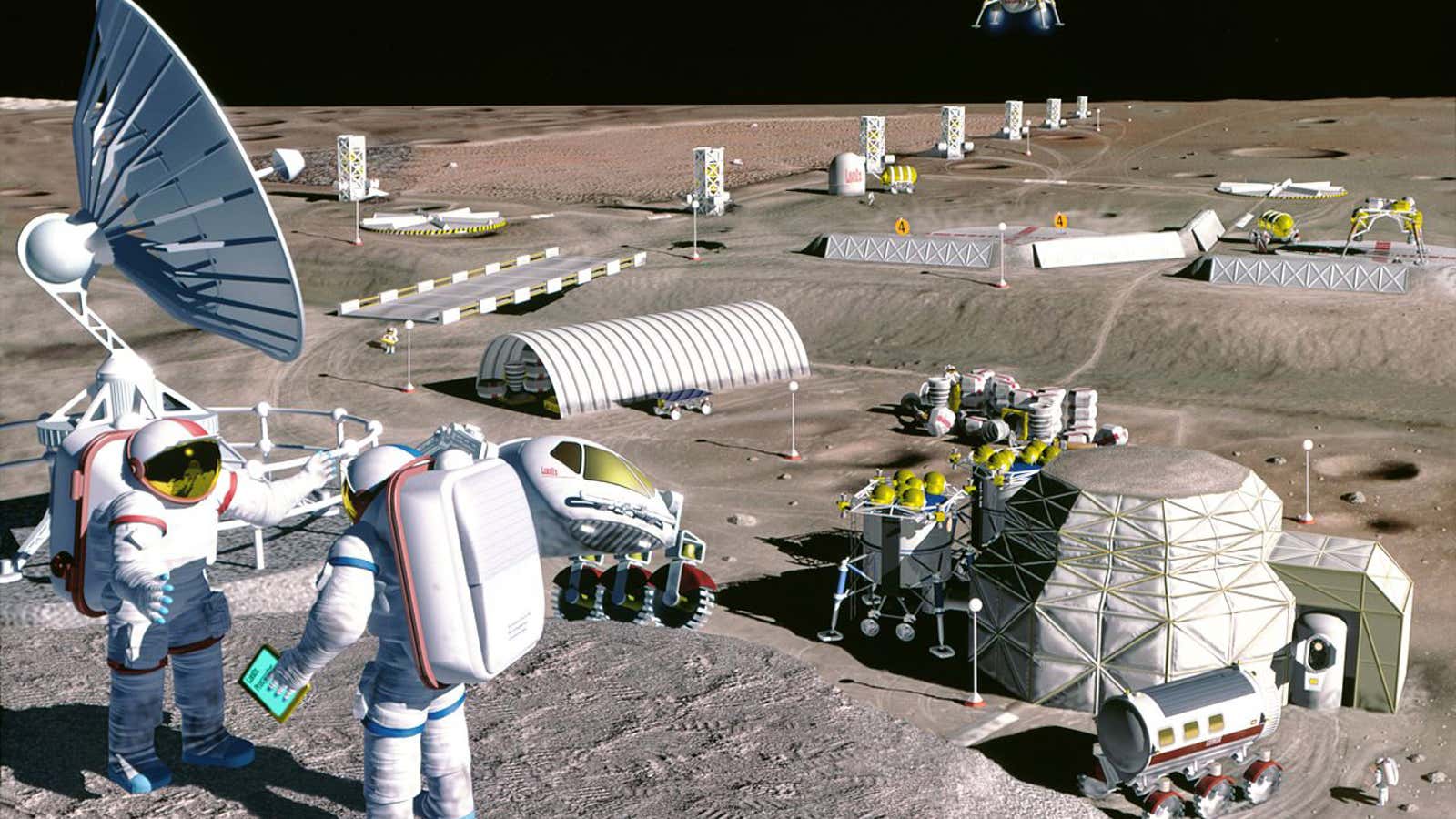For enthusiasts of space travel, the bad news keeps coming. A new study, just published in Science Advances, finds that the smartest humans who will be chosen to go to Mars may not remain smart by the time they reach their destination (if at all they do).
We have known for a long time that leaving our cushy planet is fraught with problems. Space may be largely empty, but it’s filled up with invisible charged particles traveling at nearly the speed of light. Earth’s magnetic field deflects these particles, but space travelers will inevitably be exposed to such radiation. And the new study predicts that it will cause rapid and permanent damage to the brain.
In the study, the researchers from the University of California, Irvine and University of Nevada, Las Vegas, subjected mice to radiation similar to the gamma cosmic rays that humans will be exposed to on their way to Mars. After six weeks of exposure to the radiation, which was made up of charged oxygen and titanium atoms, mice were given cognitive tests.
When compared to mice who were not exposed to radiation, the irradiated mice performed far worse. On being shown familiar objects, these mice weren’t interested. They also lacked curiosity towards new objects.
These observations can be explained by the changes that occurred in brains of the irradiated mice. The researchers found that the radiation had hacked at the branches originating from neurons. These branches, and the connections they form, are vital to the proper functioning of the brain. Losing them has been associated with Alzheimer’s disease in humans.
Space radiation is so harmful because its high-energy particles leave tracks of damage in cells and tissue that are difficult for the body’s repair system to fix. This occurs because the ionized particles are like bullets inside of bullets: Once the big bullet manages to enter cells or tissue, it causes further damage by firing off many more smaller bullets.
To be sure, six weeks of radiation won’t hurt humans who have larger brains. But over the period of many months, which is what a Mars mission would require, humans would suffer from similar cognitive deficits. Short trips, say to the Moon, should be safer.
Staying cognitively sharp to face any unexpected situation during a space mission is a matter of life or death, especially when any communication with the Earth will have increasing delays introduced by the growing distance between the spacecraft and our terrestrial home. NASA has been investing heavily in testing the feasibility of sending humans to Mars, and this study was the first to test the effects of space radiation on cognition in such detail.
According to the lead scientist of the study, Charles Limoli, there is no way to fully escape high-energy particles. Trying to carry effective shields is currently prohibitively expensive—the heavier the shielding equipment, the more rocket fuel you need.
Instead Limoli suggests that some preventative measures could help like padding the resting and sleeping areas or taking drugs that contain free radicals, which reduce the damage. There is even a suggestion that astronauts’ pee and poop be used to line the spacecraft (water is more effective than metals at protecting against space radiation).
